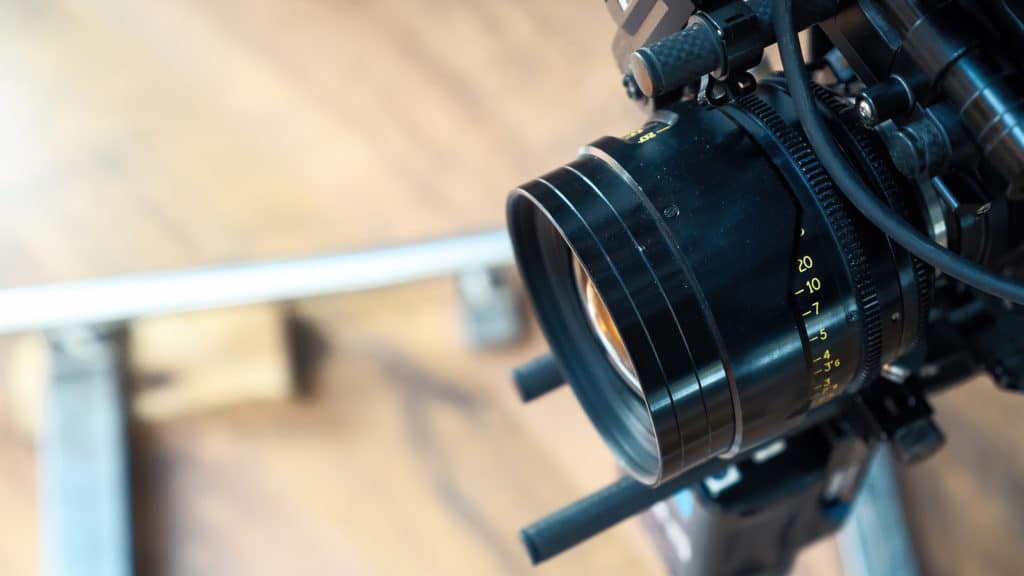The Significance of Legal Video Depositions in Modern Legal Providers: What You Must Know
Legal video clip depositions have become essential in today's lawful landscape. They supply a multidimensional sight of witness testaments that standard transcripts just can not match. By catching both spoken and non-verbal communication, these depositions enhance the total understanding of a witness's reputation. Nonetheless, the efficiency of video clip depositions rests on different elements, consisting of conformity with legal standards and ideal techniques (legal video depositions). Discovering these elements exposes their true relevance in contemporary lawful services
What Are Lawful Video Clip Depositions?
Legal video depositions act as a crucial device in the litigation process. They include recording witness testaments in a video clip format, recording both verbal and non-verbal interaction. This technique permits lawyers to record the disposition, expressions, and reactions of witnesses, providing a richer context for the testament. Usually performed in a regulated atmosphere, these depositions are led by lawyers that ask inquiries while a court reporter documents the discussion. The resulting video clip can be crucial for trial preparation, as it allows legal representatives to analyze the reliability of witnesses and fine-tune their techniques. Furthermore, lawful video clip depositions can be made use of in numerous lawful contexts, ranging from civil disputes to criminal cases. The visual and auditory elements of video clip depositions boost the discussion of proof, making it a crucial part in the contemporary lawful landscape. In general, they add considerably to the efficiency and performance of legal procedures.

Advantages of Video Clip Depositions Over Typical Techniques
Video depositions supply numerous advantages contrasted to standard methods of taking witness statements. One substantial advantage is the capacity to record both audio and visual aspects, providing a more comprehensive record of the witness's statements. This twin style boosts clarity and permits attorneys to reference certain nuances throughout test preparation. Furthermore, video depositions facilitate remote engagement, making it much easier for witnesses who may be inaccessible for in-person appearances as a result of geographical restrictions or health and wellness issues.Moreover, video clip depositions can speed up the total deposition procedure, decreasing the moment and costs connected with travel and logistics. They also enhance availability, as tape-recorded depositions can be conveniently shared amongst lawful teams and referenced any time. This comfort adds to much better case administration and prep work. In general, video clip depositions represent a modern-day, reliable method to collecting witness statements, lining up with the progressing requirements of the legal career.
The Function of Body Language and Tone in Testimonies

In legal video clip depositions, body language and tone play important functions in sharing a witness's trustworthiness and trustworthiness. Nonverbal cues can supply insights into a witness's psychological state, affecting how their testament is viewed. Comprehending the influence of these aspects is vital for lawyers and jurors alike when evaluating the dependability of a statement.
Nonverbal Communication Insights
While spoken interaction is often emphasized in legal testaments, nonverbal cues such as body language and tone play a necessary duty in sharing credibility and emotion. Observers of depositions may note that a witness's posture, gestures, and facial expressions can considerably affect assumptions of integrity. For instance, regular eye get in touch with might signal self-confidence, while preventing look might recommend dishonesty or pain. In a similar way, the intonation-- its rate, pitch, and volume-- can give feelings of sincerity or unpredictability. Attorneys have to be attuned to these nonverbal signals, as they often provide important context that enhances spoken words. Comprehending these nuances can enhance the performance of depositions and influence the outcome of lawful procedures.
Emotional Tone Effect
The emotional tone shared during lawful statements considerably affects how a witness is regarded. Body movement, vocal inflections, and faces play crucial roles in forming the story of a testament. A witness exhibiting self-confidence with steady eye get in touch with and a tranquil tone can impart a feeling of integrity and interaction. Conversely, indications of stress and anxiety, such as fidgeting or an unstable voice, might cause apprehension regarding their account. The nuances of psychological expression can influence the analysis of realities, making it essential for attorneys to identify these cues. In video depositions, the acoustic and aesthetic parts combine, stressing the importance of psychological tone in conveying sincerity and reliability within the lawful procedure.
Reliability and Dependability
An essential factor in establishing integrity and trustworthiness during statements hinges on the witness's body movement and intonation. Viewers often depend on non-verbal signs-- such as eye get in touch with, stance, and motions-- to assess a witness's sincerity. For example, a witness that keeps eye call and shows open body movement may be viewed as more sincere and trusted than one who prevents eye get in touch with or shows up shut off. Additionally, tone of voice plays an essential role; a steady, calm tone can reinforce the integrity of the statement, while changes in pitch or volume might increase questions. Inevitably, the mix of body movement and vocal tone greatly affects exactly how a witness's declarations are gotten and translated in a lawful context.
Ideal Practices for Carrying Out Video Depositions
Conducting video depositions calls for mindful preparation and execution to guarantee a reliable and clear discussion of testament. Initially, it is very important to pick a quiet, well-lit area to minimize distractions and protected optimum video clip high quality. The equipment must be checked in development, including electronic cameras, microphones, and lighting, i loved this to avoid technological issues during the deposition.Next, events entailed must review the style and treatments beforehand, ensuring that every person comprehends their roles. The deponent must be oriented on the process, consisting of how to respond plainly and concisely.Additionally, keeping a professional attitude throughout the session is important. This includes avoiding speaking over one an additional and confirming that all concerns are guided suitably. Finally, it is crucial to tape the deposition in a layout that allows for simple playback and testimonial, maintaining the honesty of the testimony for future use.
Lawful Factors To Consider and Conformity Issues
How do legal considerations and conformity problems affect the efficiency of video clip depositions? Attorneys need to browse a complicated landscape of guidelines, making certain that video depositions abide by jurisdictional rules and standards. Compliance with regulations worrying personal privacy, approval, and taping techniques is necessary. Getting specific consent from all parties involved is required to avoid lawful repercussions.Additionally, the admissibility of video evidence in court can pivot on compliance with procedural needs. Making sure that the devices used fulfills technological standards is additionally vital, as bad quality can threaten the deposition's reliability.Moreover, attorneys must recognize any kind of certain state laws that control video depositions, as these can differ considerably. Failure to resolve these considerations can not just endanger the integrity of the deposition however also influence the overall instance technique, inevitably impacting the customer's legal end results.
How Video Clip Depositions Impact Court Understanding
While video clip depositions can serve as powerful devices in legal procedures, their influence on jury understanding is considerable. The visual and auditory aspects of video clip recordings supply jurors with a more detailed understanding of witness temperament, trustworthiness, and psychological reactions. This multimedia strategy can enhance the jurors' capability to analyze the reliability of statement contrasted to typical text-based transcripts.Moreover, video depositions enable jurors to observe body movement, tone of voice, and faces, all of which can influence their analysis of the Discover More Here witness's statements. The existence of a witness on display can humanize them, promoting compassion and link, which may sway jurors' viewpoints. Alternatively, a witness that shows up evasive or untrustworthy on video clip might bring about adverse assumptions that influence a jury's choice. Inevitably, the vibrant nature of video clip depositions plays an essential duty in shaping how jurors interpret evidence and reach their decisions.
The Future of Video Clip Depositions in Legal Practice
As innovations in technology remain to reshape the legal landscape, the future of video clip depositions is positioned for substantial advancement. Technologies such as expert system, digital fact, and boosted video clip conferencing devices are expected top article to improve the deposition process and improve accessibility. Lawyers might utilize AI-driven analytics to assess witness reliability and case strength extra effectively.Moreover, the assimilation of online truth could permit juries to experience immersive simulations of depositions, providing much deeper context and understanding. In addition, the fad towards remote depositions is most likely to persist, supplying better versatility for lawyers and clients alike.As remote work comes to be increasingly stabilized, video clip depositions will likely come to be common method, lowering expenses and time constraints related to standard techniques. Generally, these technical developments promise to boost the efficiency, performance, and availability of video depositions in lawful practice, inevitably transforming just how lawyers get ready for test.
Often Asked Inquiries
Exactly How Much Do Lawful Video Depositions Commonly Expense?

Can Video Clip Depositions Be Used in Any Type of Situation?
Video clip depositions can be utilized in different kinds of cases, consisting of civil, criminal, and family regulation. Their versatility enables lawyers to present witness statements successfully, adapting to the certain needs of various legal circumstances.
What Tools Is Required for a Video Clip Deposition?
To perform a video deposition, necessary tools includes a high-grade video camera, microphone, illumination, and a trusted recording tool. Additionally, a computer with editing software application might be needed for post-production and formatting the last video clip.
For how long Does a Typical Video Deposition Last?
A normal video clip deposition lasts in between 2 to 4 hours, relying on the intricacy of the instance and the variety of concerns presented. Extensive sessions may happen, however breaks are normally included for individual comfort.

Are Video Clip Depositions Admissible in Court?
Video depositions are usually permissible in court, given they abide by lawful requirements and policies of proof. Their use enhances clarity and preserves witness testament, assisting in the judicial procedure during hearings and trials. Lawful video clip depositions have become important in today's legal landscape. Additionally, lawful video clip depositions can be utilized in various lawful contexts, varying from civil conflicts to criminal cases. Additionally, video depositions facilitate remote engagement, making it simpler for witnesses that may be not available for in-person looks due to geographical restrictions or health and wellness issues.Moreover, video depositions can quicken the general deposition process, lowering the time and prices linked with traveling and logistics. Ensuring that the equipment utilized fulfills technical criteria is also vital, as bad quality can threaten the deposition's reliability.Moreover, attorneys must be conscious of any details state laws that regulate video depositions, as these can differ substantially. Additionally, the trend towards remote depositions is likely to linger, using better versatility for clients and attorneys alike.As remote job becomes increasingly stabilized, video depositions will likely end up being standard practice, minimizing costs and time restraints associated with conventional techniques.